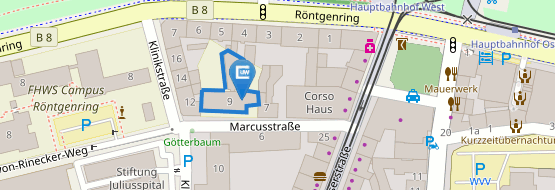PhD Students
PhD Researchers - 2nd cohort
Emily Zoe Burlon
Department of Psychology
University of Würzburg
Marcusstr. 9-11
97070 Würzburg
Germany
E-Mail: emily.burlon AT uni-wuerzburg.de
Emily Zoe Burlon is a PhD student in Project C1, supervised by Prof. Gamer.
Her research focuses on decision-making processes during social situations characterized by high uncertainty. Specifically, she aims to identify the precursors of social decisions. To achieve this, she will develop a task where participants must choose between social interactions, each followed by either a rewarding or punishing consequence. During the task, EEG, autonomic, and eye-tracking data will be collected to identify relevant correlates. In the next phase of her research, she plans to experimentally manipulate these processes to test the causality of the observed correlations.
Before beginning her PhD, Emily completed her Bachelor's and Master's degrees in Psychology at the University of Cologne. Her interest in bridging social psychology and cognitive neuroscience was sparked during an internship and the completion of her Master's thesis at the Forschungszentrum Jülich.
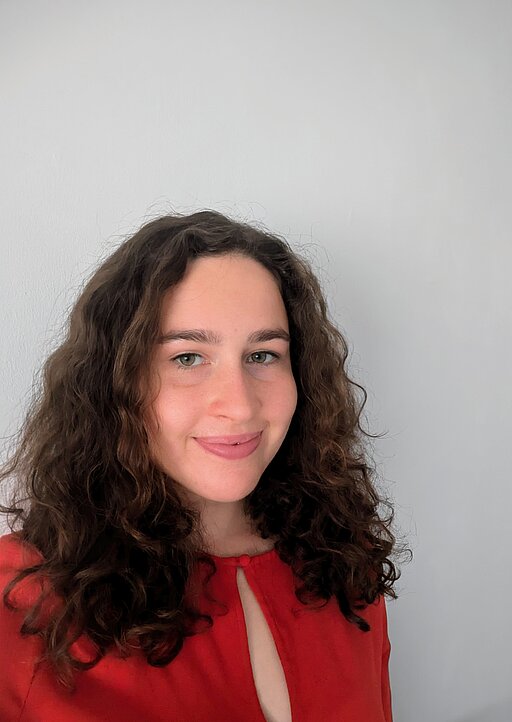
Nis Focken
Institute of Clinical Neurobiology
Versbacher Str. 5
97078 Würzburg
Germany
E-Mail: focken_n AT ukw.de
Nis Focken is a PhD researcher in Project A1, where he contributes to the characterization of prefrontal- amygdala-midbrain circuits involved in adaptive behaviour. Based at the Defense Circuits Lab under the supervision of Prof. Tovote, his research focuses on dynamic risk assessment states, aiming to modulate behavioural outcomes through targeted manipulation of neuronal activity.
Prior to joining the RTG, Nis completed a Master in Integrative Neuroscience at the University of Magdeburg.
Besides science, he is enthusiastic about coffee, space travel and all kinds of outdoor activities.
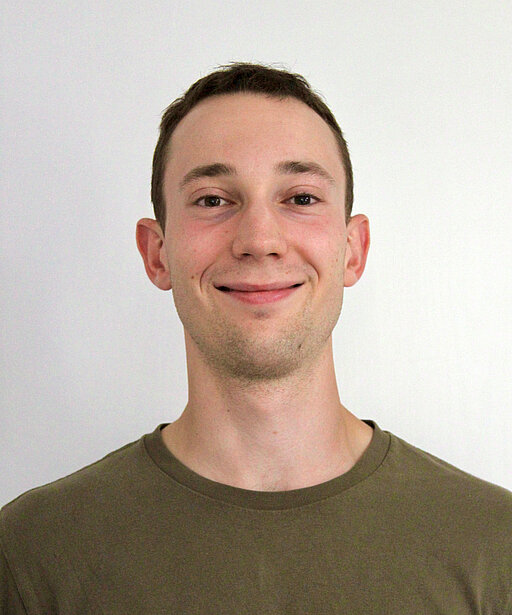
Ruiyi Li
Ruiyi Li is pursuing her PhD within project B2, “Developmental Effects of Approach-Avoidance Conflicts Related to Impulsive Approach and Generalized Avoidance,” under the supervision of Prof. Dr. Andrea Reiter.
Ruiyi has been passionate about developmental psychopathology since her undergraduate studies. She earned a double-degree Bachelor’s in Child Psychology and Education, and Psychology from Sungkyunkwan University in South Korea and recently completed her Research Master’s in Cognitive and Clinical Neuroscience with a specialization in Clinical Psychology at Maastricht University.
Her PhD research focuses on the cognitive mechanisms underlying effort-based decision-making in children and adolescents, employing behavioral experiments, ecological momentary assessment (EMA), and computational modeling.
In her free time, Ruiyi enjoys swimming, Pilates, weightlifting, and hip-pop dance.

Xianhui Li
Department of Psychiatry, Psychosomatics and Psychotherapy
Margarete-Höppel-Platz 1
97080 Würzburg
Germany
E-Mail: Li_X AT ukw.de
Xianhui Li is a PhD researcher in project C3 under the supervision of Prof. Angelika Schmitt-Böhrer.
During her PhD, she will use neurobiological methods to study the role of the serotonergic system in social approach and avoidance behaviors in mouse models, while also exploring potential gender differences.
Before starting her PhD, her interest and passion for basic research were sparked during her Master's degree in Traditional Chinese Medicine at Guangzhou University of Chinese Medicine. After graduation, she participated in depression research at Jinan University, which helped her develop foundational skills in neuroscience.

Elisa Percolla
Department of Psychology I
University of Würzburg
Marcusstr. 9-11
97070 Würzburg
Germany
Gebäude: Marcusstraße 9-11
Raum: 307
E-Mail: elisa.percolla AT uni-wuerzburg.de
Elisa Percolla is a Doctoral Researcher in the project A2 under the supervision of Prof. Andrea Kübler. She is working on EEG correlates of approach-avoidance behaviour and the role of Neurofeedback in conflict resolution, self-regulation and longitudinal neuroplastic adjustments.
Previously, she completed a Master in Cognitive Science with a final contribution on EEG and tactile stimulation for (im)paired novelty detection in Osnabrück, Germany. Before that, she studied Science of Communication with a focus on Sociology of cultural phenomena in Catania, Italy.
In her free time, you’ll find her talking (with an omnipresent cup of coffee in her hand) about mindfulness, gender equality, and sustainable lifestyles.
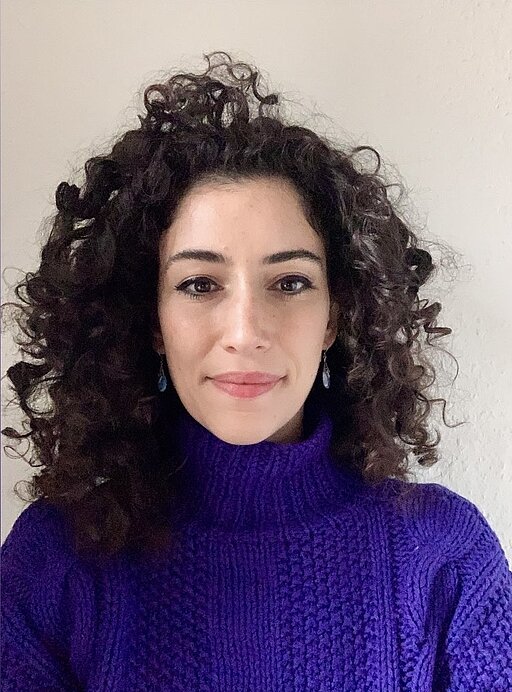
Kartik Rai
Kartik Rai is a PhD researcher in project C2 under the supervision of Prof. Grit Hein. His research focuses on an approach-avoidance conflict paradigm to explore how the presence of a social partner and empathy influence decision-making when faced with facial ambiguity, utilizing behavioural, computational and neuroimaging modalities.
He has an academic background in Computer Science and later pursued a Master’s in Mental Health Psychology at the University of Edinburgh, Scotland. Before joining the RTG, he worked as a mental health practitioner in Edinburgh, supporting individuals with complex psychiatric disorders.
Beyond research, Kartik enjoys dancing, cooking, hiking, discovering new cafes and is passionate about mental-wellbeing.
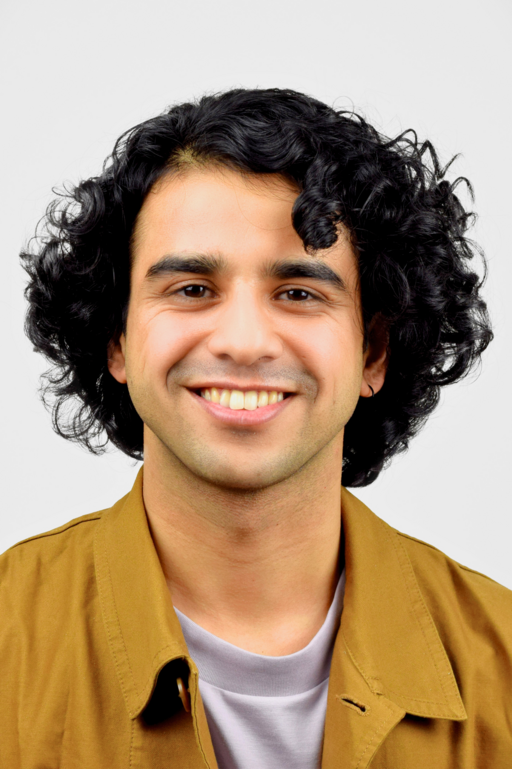
Yashas Ramakrishna
Department of Psychology
University of Würzburg
Marcusstr. 9-11
97070 Würzburg
Germany
E-Mail: yashas.ramakrishna AT uni-wuerzburg.de
Yashas Ramakrishna is a doctoral researcher under the co-supervision of Prof. Gamer, Prof. Hein and Prof. Tovote.
During his PhD, he will work towards translating research paradigms and findings across humans and animal models, focusing primarily on defensive states. To this end, he intends to design experiments and analyse data involving physiological recordings including, but not limited to, ECG, skin conductance, photoplethysmography and eye tracking.
Before starting his PhD here, Yashas completed his BS-MS dual degree at the Indian Institute of Science, Education and Research (IISER), Thiruvananthapuram. His long-standing passion for neuroscience led him to complete another Master’s in Neurosciences from the International Max Plank Research School at the University of Göttingen.
In the wild…, you will not find him – not unless he was dragged out by his friends. He largely prefers spending his time tinkering with some electronics, coding for a new pet project or grinding video games.

Antonia Rausch
Department of Psychology I
University of Würzburg
Marcusstr. 9-11
97070 Würzburg
Germany
Raum: 313
E-Mail: antonia.rausch AT uni-wuerzburg.de
Antonia Rausch has a background in neuroscience and is deeply passionate about the dynamic interplay between physiology, cognition, and psyche and their influence on health maintenance and well-being.
For her PhD project, she will explore approach-avoidance conflicts in developmental populations, focusing on how children and adolescents navigate learning and decision-making. This will involve behavioural analysis, functional imaging, and cognitive mapping techniques.
In her spare time, you can find Antonia in nature, hiking and cycling. Besides outdoor activities, she is interested in crafting and enjoys game nights with friends.

Petra Rebek
Institute of Clinical Neurobiology
Versbacher Str. 5
97078 Würzburg
Germany
E-Mail: Rebek_P AT ukw.de
Petra Rebek is a PhD researcher in Project A1, under the supervision of Prof. Tovote at the Defense Circuits Lab.
Before joining the RTG, Petra worked as a physiotherapist and later pursued a Master’s in Brain Sciences at the University of Glasgow. Her dissertation examined the effects of audiovisual gamma stimulation on neuronal activity in the retrosplenial cortex of a mouse model of Alzheimer’s disease.
Her PhD investigates the upstream regulation of long-term decision-making across the prefrontal-amygdala-brainstem network. Specifically, her project focuses on how identified neuronal subtypes in the periaqueductal gray integrate interoceptive information to mediate the balance between approach and avoidance behaviours.
Outside of research, Petra enjoys reading, going to the gym, and running outdoors.
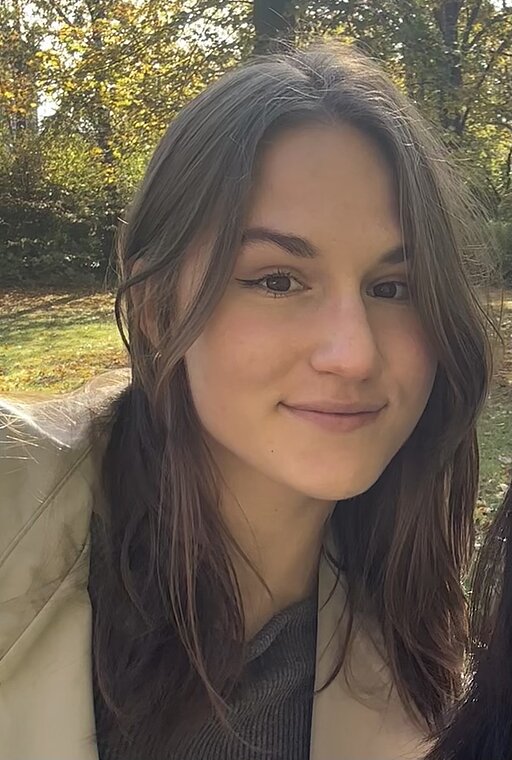
Dorothea Tsounis
Department of Child and Adolescent Psychiatry
University Hospital of Würzburg
Margarete-Höppel-Platz 1
97080 Würzburg
E-Mail: Tsounis_D AT ukw.de
A novel theory regarding the etiology of various neurodevelopmental disorders proposes that they may occur due to an excitatory and inhibitory (E/I) imbalance in the brain. E/I balance is defined as the stable, global activity level of a neural circuit, and determined by the relative amount, strength, and activity of excitatory (glutamatergic) and inhibitory (GABAergic) synapses. It directly correlates with the efficiency of the neural circuit, and disturbances of E/I balance have been proposed as an underlying reason of ADHD.
Dorothea Tsounis is investigating the functional and structural implications of an ADHD-associated genetic variation of Cadherin-13, and its effects of E/I balance, using iPSC-derived neuronal co-culture models.
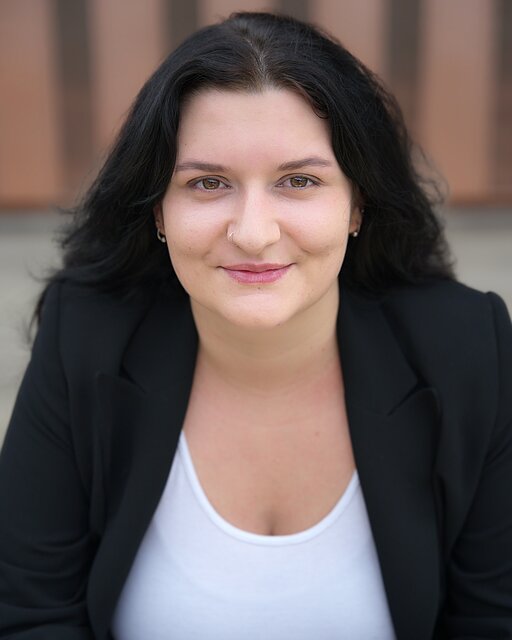
Yang Xu
Margarete-Höppel-Platz 1
97080 Würzburg
Germany
E-Mail: Yang_X AT ukw.de
Yang Xu, from China, is a doctoral student in the Translational Social Neuroscience Group (PI: Grit Hein) at the Center for Mental Health. Before that he received a bachelor degree of arts in Beijing University of Posts and Communications, followed by a three-year master program of basic psychology in Capital Normal University.
He has a curious mind for various topics in cognitive neuroscience, with special focuses on decision-making and social cognition. One line of his current research is to investigate the association between social cognition and delay discounting through large open MRI datasets. At the same time, he is also investigating the formation and generalization of empathy, through experiments and computational modeling.
Please feel free to drop him a direct message or email if you want to talk to him.

PhD Researchers - 1st cohort
Jasper Bischofberger
Margarete-Höppel-Platz 1
97080 Würzburg
Germany
Jasper Bischofberger is a doctoral researcher in the project C2 under supervision of Prof. Grit Hein at the Center of Mental Health.
Before he joined the Translational Social Neuroscience Lab, he studied Cognitive Science at the University of Tübingen, where he investigated visual working memory and facial emotion recognition.
In his current PhD project, he studies how social interactions modulate avoidance and approach learning in humans. He combines modified versions of reinforcement learning models with functional magnetic resonance imaging (fMRI) to investigate the neural mechanisms of adaptive and maladaptive avoidance and approach behavior.
Outside of science, Jasper is passionate about sustainability, food, and various other ways to increase physical and mental wellbeing.

Menghuan Chen
Department of Psychology
University of Würzburg
Marcusstr. 9-11
97070 Würzburg
Deutschland
Menghuan Chen is a Doctoral Researcher in the project B1 under supervision of Prof. Pauli and Prof. Pittig.
During her PhD, she will work on approach-avoidance conflicts related to impulsive versus reflective processes using biopsychological methods and neuroimaging techniques (i.e., fMRI).
Before starting her PhD, she studied Cognitive Neuroscience in Sino-Danish College, University of Chinese Academy of Sciences, and conducted research focusing on addiction disorders with methods of virtual reality, eye-tracking, EEG and machine learning.

Sebastian Evers
University Hospital Würzburg
Josef-Schneider-Str. 11
97080 Würzburg
Deutschland
Sebastian Evers is conducting his PhD research in the project A3 “Approach and Avoidance in pain management” together with Prof. Dr. med. Sommer.
He studied in several fields of biology and finally found an interest in the research field of brain-computer-interfaces (BCIs). He finished his Bachelor in Biology and Computer Science at the University of Bremen and lately finished his Master in Biomedical Science with a focus on Neuromodulation in Maastricht.
During his PhD, he is going to research a possible Neurofeedback application to reduce the sensitivity of migraine patients towards their migraine-triggers. To reach this goal he will work with high-density EEG-Systems and common Neurofeedback-procedures.
In his free time, Sebastian follows his passion of travel, hiking, and krav maga or relaxes in front of the computer or his graphic tablet.

Sabrina Gado
Department of Psychology
University of Würzburg
Marcusstr. 9-11
97070 Würzburg
Deutschland
Sabrina Gado is a PhD researcher in the project C1 with Prof. Gamer.
Before she started her PhD, she studied both psychology and business informatics, which sparked her interest for neuroscientific research and programming.
During her PhD, she is going to research approach and avoidance conflicts, especially in Social Anxiety Disorder. For this aim, she plans to use Virtual Reality as a research method, as well as other biopsychological and neuroscientific measures.
When Sabrina is not nerding out in front of the computer and with her awesome colleagues, you can find her riding her bike through the vinyards around Würzburg.

Nikita Gorbunov
Department of Psychiatry, Psychosomatics and Psychotherapy
University of Würzburg
Margarete-Höppel-Platz 1
97080 Würzburg
Nikita Gorbunov is a PhD researcher in the Project B3 under supervision of Prof. Klaus-Peter Lesch.
Before coming to Würzburg to do his PhD, he did his master's thesis in biophysics at "Peter the Great St. Petersburg Polytechnic University".
His previous studies focused on the registration of neuronal activity in freely moving animals, and now, as part of his PhD project, he will use optogenetics to modulate the behavior of animals with low levels of serotonin in the brain.

Eva Masson
Department of Psychology
University of Würzburg
Marcusstr. 9-11
97070 Würzburg
Deutschland
Eva Masson does her PhD in Prof. Kübler's group (A2).

Morgane Paternoster
University Hospital Würzburg
Josef-Schneider-Str. 11
97080 Würzburg
Deutschland
Morgane Paternoster is a doctoral researcher in the project A3 under supervision of Prof. Sommer Claudia at the neurology department of the University Hospital.
Before joining the RTG, Morgane worked as a physiotherapist and decided to deepen her knowledge by studying Neurosciences at the university Paris-Est Créteil for her Masters. Combining her two specialties, she investigated mirror movements and their cerebral correlates in stroke patients.
During her PhD, Morgane will work on approach and avoidance behaviour in pain management, especially with migraine patients, using high density EEG and other biological methods.
When Morgane is not in the lab, you can find her learning piano, cooking or enjoying some outdoor activities.

César Redondo
University clinic
Versbacher Str. 5
César Redondo is a PhD researcher in project A1, under the supervision of Prof. Tovote. Before moving to Würzburg he studied Biomedicine and Neuroscience, researching topics such as anatomy, memory and Alzheimer's disease. During his PhD he is going to work on the implementation of Neurofeedback in anxiety mice models. This technique, already used in humans, is based on the volitional modulation of the own subject brain activity by themselves. This research will grant a deeper knowledge on a different approach to treat anxiety and fear disorders in human patients.
Outside, and also inside the lab, he is a big nerd and a coffee lover.

David Felix Reindel
Margarete-Höppel-Platz 1
97080 Würzburg
David Reindel is a PhD researcher in project B2, under the supervision of Prof. Reiter.
David studied psychology at the TU Dresden. Despite getting a master in “Psychology: Human Performance in Socio-Technical Systems”, he never lost his interest in Developmental Psychology and Neuroscience.
In his PhD project, he will investigate approach-avoidance conflicts related to impulsive approach and generalized avoidance from a developmental perspective. To do so, he will adopt a computational psychiatry approach and also work with structural imaging data.
Outside of research, he likes drinking coffee, exercising in the gym or outside and reading.

Maria Pfeiffer
Department of Psychology
University of Würzburg
Marcusstr. 9-11
97070 Würzburg
Deutschland
Maria Pfeiffer is a PhD Student in Prof. Küblers Project A2.
She is working on a Neurofeedback paradigm relying on EEG correlates of approach-avoidance conflict and resolution. The goal will be the upregulation of behavioral activation and the decrease of fear reactions. Previously she did her Bachelor in Magdeburg in Philosophy-Neuroscience-Cognition and the Translational Neuroscience Master in Würzburg.
In her free time you’ll find her rolling on the mat (Judo/BJJ) or running/cycling whenever a pandemic prevents her from gathering with people.

Ana-Magdalena Pineau
Department of Psychiatry, Psychosomatics and Psychotherapy
University of Würzburg
Margarete-Höppel-Platz 1
97080 Würzburg
Ana-Magdalena Pineau is a Doctoral Researcher in the project B3 with Prof. Lesch.
Before she started her PhD, she studied biochemistry and then neurosciences and cells signalling with a strong interest for biochemical pathways within the brain and neuronal culture derived from IPSC.
During her PhD, she is going to investigate the impact of copy number variants of the SLC2A3 gene that encodes the neuronal glucose transporter GLUT3 on neuronal morphology and function. To this end, she will differentiate neurons from induced pluripotent stem cells to study the effect of neurometabolic alterations on neural outgrowth and synaptic activity.
When Ana is not cooking or playing capoeira within the awesome group of Würzburg, you can find her taking different dance classes.

Elif Salur
Department of Psychiatry, Psychosomatics and Psychotherapy
Margarete-Höppel-Platz 1
97080 Würzburg
Elif Salur is a PhD researcher in project C3 under the supervision of Prof. Angelika Schmitt-Böhrer and Prof. Esther Asan.
Before joining the Functional Neuroanatomy Lab, she delved into the intricacies of biology while simultaneously exploring the realm of environmental biology through a minor program. Building upon that foundation, she furthered her academic journey and earned a master's degree in neuroscience, with research on reward pathways. This experience sparked her profound interest in neurobiology and the complex mechanisms of adaptation to an ever-changing environment, now particularly in social contexts.
During her PhD, she will investigate the role of the serotonergic system in social approach and avoidance behaviors in mice models while exploring potential sex differences.
Outside of the lab, she passionately pursues photography, nurtures her love for plants, and actively embraces intersectional feminism.

Francesco Tortora
Department of Psychology
University of Würzburg
Marcusstr. 9-11
97070 Würzburg
Germany
Francesco Tortora is a doctoral student supervised by Prof. Dr. Matthias Gamer and Dr. Marta Andreatta.
Before joining the RTG, he completed his studies in Neuroscience and Neuropsychological Rehabilitation at the University of Bologna, where he explored aversive learning and memory processes, as well as their modulation through non-invasive brain stimulation techniques.
In his doctoral research, Francesco investigates how contextual information influences physiological processes and avoidance behavior. To this aim, he integrates virtual reality with advanced physiological and behavioral measures.



